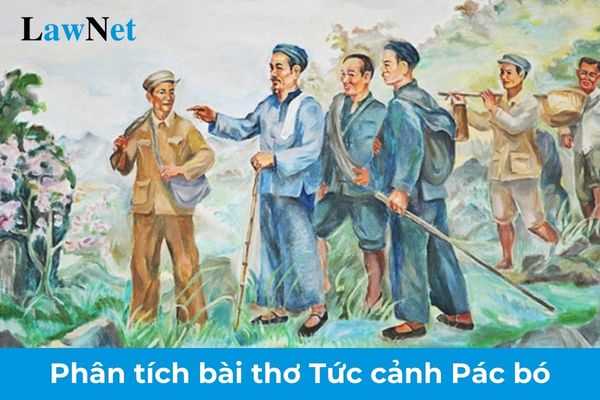What is the sample essay on analysis of the poem "Tức cảnh Pác Bó" for 9th-grade students? What is the regulatory age of 9th-grade students for lower secondary graduation recognition in Vietnam?
What is the sample essay on analysis of the poem "Tức cảnh Pác Bó" for 9th-grade students in Vietnam?
"Tức cảnh Pác Bó" is a quintessential poem by Ho Chi Minh, composed during his time living and working in the Pac Bo Cave (Cao Bang) after returning to lead the revolution. To analyze the poem "Tuc Canh Pac Bo," we need to focus on the content, artistry, and ideological significance that the work conveys.
Below is a sample analysis of the poem "Tức cảnh Pác Bó" for students to refer to.
|
President Ho Chi Minh is the beloved leader of the Vietnamese nation. Not only was he a brilliant military strategist and a great leader, but also a true artist. "Tức cảnh Pác Bó" was composed by President Ho in Pac Bo Cave in Cao Bang province in 1941. The poem can be considered one of the most remarkable creations in his artistic life.
“Bàn đá chông chênh dịch sử Đảng” The stone slab by Lenin Stream suggests instability and roughness, but despite that, he was determined to work. He was undeterred by hardships to find the right path for his people. He needed to identify a correct ideology. Thus, at Pac Bo Cave, with modest meals and working on a stone slab, our revered leader was willing to embrace it as a natural part of life. How many leaders like him exist in this world? “Cuộc đời Cách mạng thật là sang” Why is life in such deep isolation considered "luxurious"? The "luxury" here may not come from food or the workplace but from living a revolutionary life dedicated to the people and the country, a profoundly meaningful life. |
Note: The content is for reference only.

What is the sample essay on analysis of the poem "Tức cảnh Pác Bó" for 9th-grade students? What is the regulatory age of 9th-grade students for lower secondary graduation recognition in Vietnam? (Image from the Internet)
What is the regulatory age of 9th-grade students for lower secondary graduation recognition in Vietnam?
Under Article 4 of the Regulation on graduation recognition in lower secondary education attached to Circular 31/2023/TT-BGDDT, the eligibility for lower secondary graduation recognition for 9th-grade students is as follows:
Eligibility for graduation recognition
Students shall be recognized for graduation if they:
1. Are not older than 21 years old (in calendar year) if they finish Formal education program for lower secondary education; or are at least 15 years old (in calendar year) if they finish Continuous education program for lower secondary education.
In case of students returning from overseas, participating in accelerated study, attending class at an older age, regulations on age and grades of the Ministry of Education and Training.
2. Have completed Formal education program for lower secondary education or Continuous education program for lower secondary education.
3. Have adequate documents according to Article 6 hereof.
Thus, the regulatory age of 9th-grade students for lower secondary graduation recognition in Vietnam is not older than 21 years old (in calendar year) if they finish the Formal education program for lower secondary education; or are at least 15 years old (in calendar year) if they finish Continuous education program for lower secondary education.
What does the application for lower secondary graduation recognition for 9th-grade students in Vietnam include?
According to Article 6 of the Regulation on graduation recognition in lower secondary education issued with Circular 31/2023/TT-BGDDT, the application for lower secondary graduation recognition for 9th-grade students in Vietnam includes:
(1) In respect of students finishing ninth grade in education institutions, their application shall consist of their school reports.
(2) In respect of students who do not fall under Clause 1 of this Article, application for graduation recognition consists of:
- Written application for graduation recognition;
- Legitimate copies of birth certificate or ID Card;
- Original copies of school reports or printed copies of electronic school reports verified by education institutions where the students finish ninth grade. If a student loses original copies of his/her school report or does not possess printed copies of electronic school report, he/she must provide written verification of disciplinary and academic results of education institutions where he/she finishes ninth grade.

